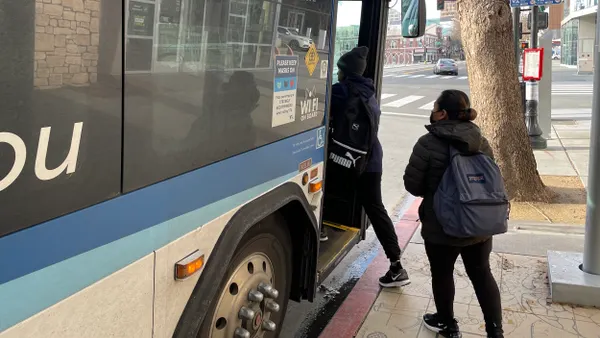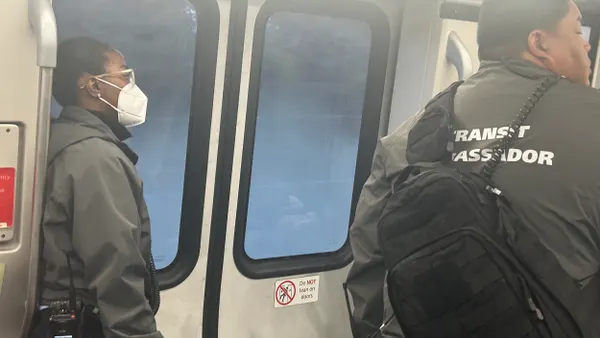Editor's note: This article was originally published in American City & County, which has merged with Smart Cities Dive to bring you expanded coverage of city innovation and local government. For the latest in smart city news, explore Smart Cities Dive or sign up for our newsletter.
With more than 30 years of experience in the fleet management industry, Tony Yankovich has seen his fair share of changes. Yankovich, who is director of fleet consulting at RTA, says nothing compares to the number of industry shifts that have occurred over the past five years. “The pace of transformation is accelerating, and fleet managers must adapt or risk falling behind. From supply chain disruptions to technological advancements, the role of the fleet professional is evolving faster than ever before.”
RTA offers fleet management information system (FMIS) and maintenance software. The firm offers Fleet360, which can help streamline daily operations. The company provides services that can aid in transforming government fleets. With more than 350 years of combined experience, RTA’s fleet management consultants can assist government in implementing a fleet replacement plan, revising a parts management program and other projects.
Yankovich says in the past, fleet decisions were based purely on intuition and experience. “Today, real-time data analytics drive strategic and tactical choices, helping organizations optimize performance, reduce costs and improve safety. Enhanced telematics, artificial intelligence and driver-assist technologies are becoming standard tools in the fleet manager’s arsenal. These innovations enable better vehicle control, improved fuel efficiency and proactive maintenance scheduling. Today’s tools help ensure that fleets run at peak performance.”
He adds that post-pandemic, fleet managers have learned that supply chain volatility is here to stay. “The COVID-19 crisis exposed vulnerabilities, with shortages of new vehicles and essential parts disrupting operations. But it’s not just pandemics that pose a threat — labor disputes, geopolitical conflicts and even natural disasters can create bottlenecks that ripple through the industry.”
Yankovich says fleet organizations must embrace resilience strategies if they want to stay ahead. “This includes rethinking procurement policies that may be too rigid to adapt to unpredictable supply chain challenges. Flexible sourcing, strategic stockpiling and diversified supplier relationships will be key to ensuring continuity.”
Managing fleets in the public sector can be a daunting task, Yankovich believes. “The reality is that many fleet managers step into leadership roles without formal training, yet they’re responsible for managing teams and making strategic decisions. Without proper development, this can lead to disruptions in operations, low team morale and higher turnover across the entire fleet.”
Yankovich notes that cities and counties are asking their fleet managers to do more. They are responding to rising transportation demands from their bosses. The fleet managers have also been asked to provide additional municipal services.
He points to another critical challenge that the industry faces: a shortage of qualified technicians. "More vehicles on the road mean a greater need for skilled mechanics, but filling these positions is becoming increasingly difficult. The workforce dynamic is shifting, with Gen X, Millennials, and Gen Z job-hopping more frequently than previous generations.”
Because of these workforce trends, the RTA executive says fleet administrators must recruit new professionals on a regular basis. And he adds: Don’t forget other workforce retention efforts. “Investing in technician training programs, offering competitive compensation, and creating career development opportunities will be crucial to attracting and retaining skilled labor. Without a steady pipeline of mechanics, fleet operations will struggle to keep up with growing demands.”
Another piece of advice that Yankovich offers to fleet administrators: Be ready to adjust to changing needs. “Fleet management has always been a complex and dynamic field, but today’s challenges require an unprecedented level of adaptability. Technology, supply chain resilience and workforce retention will define the success of fleet organizations in the coming years. The industry’s future belongs to those who embrace innovation, rethink traditional procurement models and invest in the next generation of technicians.”
Yankovich offers this conclusion: “The road ahead may be uncertain, but one thing is clear: The fleet industry is evolving, and those who are prepared will lead the way.”
OMNIA Partners, who sponsors this page, offers a robust portfolio of cooperative contracts in the public procurement space. The firm lists numerous cooperative contracts under the keyword “fleet.”









